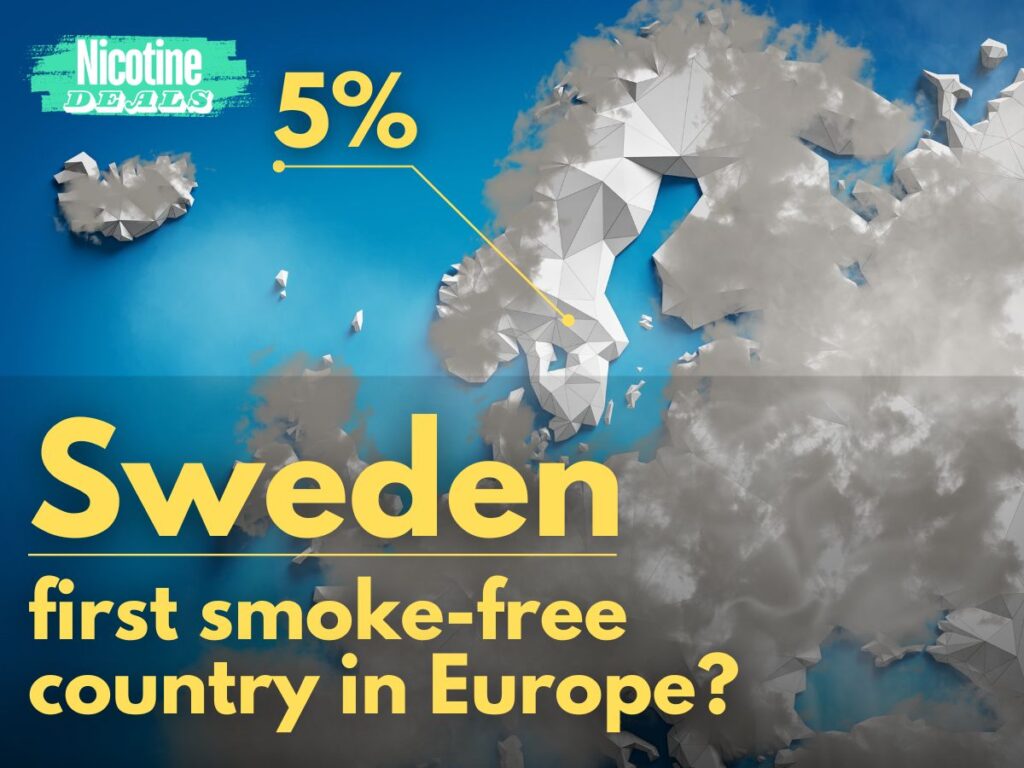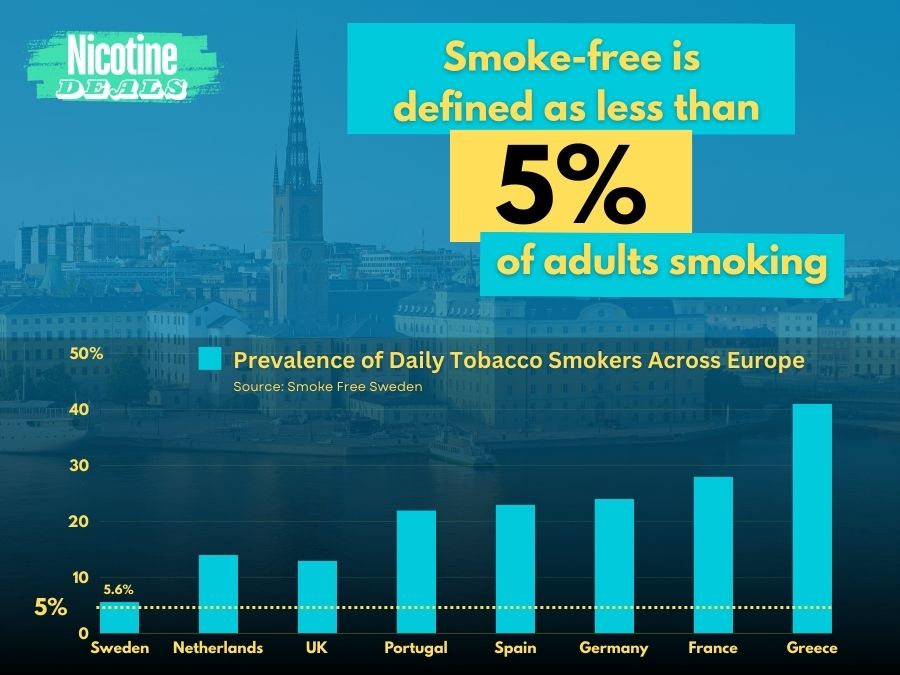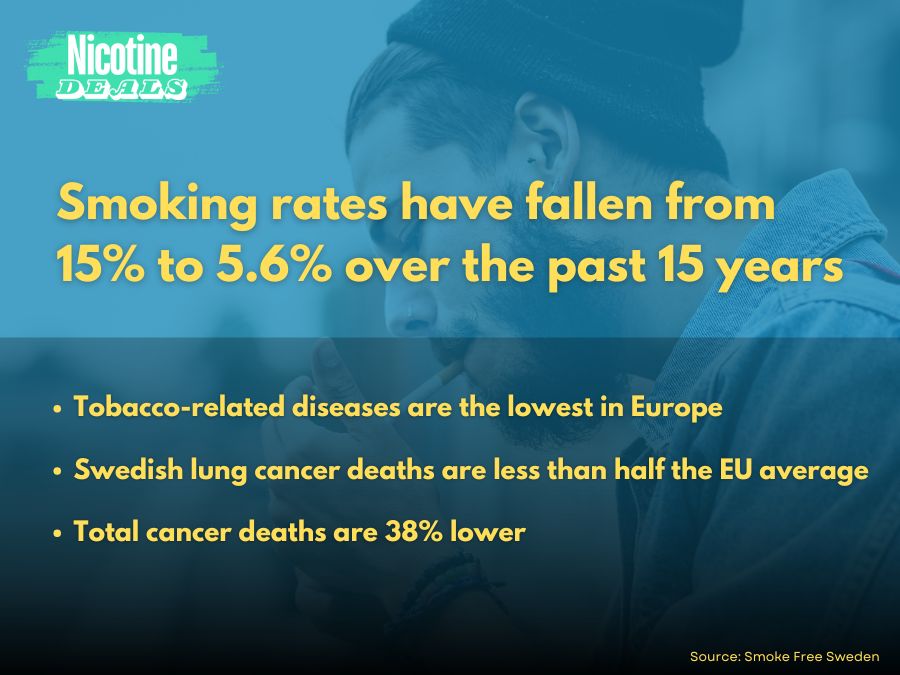WARNUNG: Dieses Produkt enthält Nikotin. Nikotin macht abhängig.
Schweden auf dem Weg, das erste rauchfreie Land zu werden
Snus is a tobacco product that comes in small pouches. It’s tucked under the lip to get a nicotine buzz, and depending on who you ask, snus is the reason why Sweden has just about quit smoking.
Only 5.6% of Swedes smoked in 2022. That’s the lowest percentage in Europe and within touching distance of the 5% target where a country can declare itself smoke-free. Swedish smoking rates have fallen by over half in the past 15 years. Today, only 5% of men and about 6% of women smoke, but about 15% of the population uses snus, mostly men, but women are a fast-growing market.

Women tend to use nicotine pouches, a relatively new product that appeared less than a decade ago. Think of them like snus but with no tobacco. Instead, they’re made of plant fibers combined with nicotine.
Snus has been part of Swedish popular culture for more than 200 years. Now it’s making a comeback.
Snus fans say Sweden’s centuries-long experiment provides the road map for the rest of the world to finally quit using cigarettes. Over the past decade, the number of smokers has dropped at its fastest rate ever, driven by the introduction of vapes in 2015 and modern nicotine pouches in 2018. These products are significantly less harmful than cigarettes, which has greatly improved the health of Swedes.

But policymakers and health advocates are divided over its use. In the EU, there are hints legislators could move to ban tobacco-free nicotine pouches. That would represent a severe economic threat to nicotine pouch makers. Products like vapes and snus were once seen as competitors to big tobacco’s core business, but these days they’re embracing them as so-called reduced-risk products.
In 2022, global tobacco giant Philip Morris International bought Swedish Match, which owns several domestic snus and nicotine pouch brands.
“It’s time to work toward the common goal of delivering effective policies that make cigarettes a historical artifact, a museum piece collecting dust behind glass cases.”
Jacek Olczak, CEO, Philip Morris International
The global market for nicotine pouch makers is projected to soar from about $2 billion in 2022 to as much as $17.6 billion by 2029. Alternative nicotine products represent an existential lifeline to big tobacco, offering a gradual sales shift from cigarettes to what they say are less harmful products.

Despite growing snus use, Sweden boasts the lowest tobacco-related cancer rates for European men. In 2019, the US Food and Drug Administration declared eight varieties of Swedish Match snus less risky than cigarettes. The regulator said use of such smokeless tobacco products poses lower risks of cancer. Still, nicotine is highly addictive. It can elevate blood pressure, contribute to cardiovascular diseases, and aggravate heart issues and other health problems.
“Of course, I’m mostly worried about that. We’re now seeing a whole new generation of nicotine addicts. They bought into the tobacco industry’s story about snus as a smoke cessation product.”
Ulrika Arehed Kagstrom, Secretary-General, Swedish Cancer Society
Kagstrom instead attributes Sweden’s low smoking rates to restrictions put in place in the 1990s.
“Sweden was one of the first countries to introduce smoke-free workplaces and introduced age limits on buying cigarettes and tobacco products. These are measures that have been proven effective in reducing smoking in Sweden.”
“We’re not there yet, and we see inequalities in terms of smoking rates depending on your level of income and education, so we still have a lot more to do before becoming a smoke-free country.”
Sources
- Bloomberg
- Smoke Free Sweden
